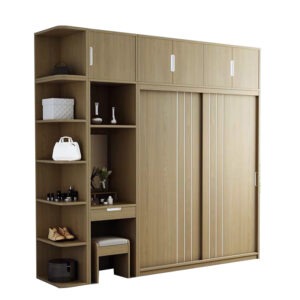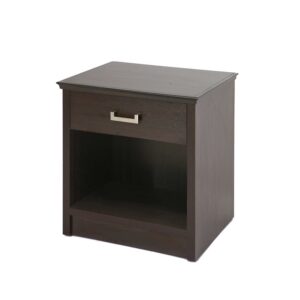How can a seemingly unassuming designer chair brighten up an entire environment? How is it that strange designer chairs, created decades ago, can still be popular today?

Because they have a rich historical background, they have changed people’s perception of chairs and remained classics for centuries. They are still used for reference by designers and enjoyed in pavilions of many countries.
Although most designer chairs are small, they can be very present. Whether a home space, a public space, or a small corner, a designer chair can redefine the surrounding area and grab your attention immediately.

That’s why interior designers always continue trying to design new chairs. Rather than breaking away from the perception of ‘sitting’, they invite you to enjoy a unique experience of sitting.

Today, let’s look at the top 10 classic designer chairs that have quantity in reproduction or replica. All of them are from design masters, which changed people’s perception of chairs in their respective eras, and most are still popular in the furniture market nowadays.
01 Barcelona Chair
Designer: Mies van der Rohe
Barcelona Chair, designed by the world-renowned architect Mies, is a landmark piece of modern furniture design and is considered the most classic chair of the twentieth century. Now, the Barcelona chair is in the collections of several world-class museums.

In 1928, Mies and his Bauhaus alumnus Lilly Reich were invited to design the German pavilion for the 1929 Barcelona International Exhibition.
This German pavilion was for the visit of Spain’s King and Queen during the opening of the Expo. With this in mind, Mies designed a modern throne for their Majesties – the Barcelona chair was a world sensation at the time.

Many architects and furniture designers of the Bauhaus era were committed to providing well-designed homes and furniture for ordinary people, but Barcelona chair was an exception.

Two large rectangular upholstered seats and backrest cushions, the design lines of the chair and ottoman, and purely handcrafted workmanship make barcelona chair a noble and comfortable chair.

Today Barcelona chair is still one of Knoll Furniture’s favorite products, active in the high-end furniture scene and popular worldwide.
02 Shell Chair
Designer: Hans Jørgensen Wegner
Shell chair can be found everywhere in our lives, whether in the home or the office. And this designer chair has a long story.

Danish designer Hans J. Wegner is recognized as one of the world’s most creative and prolific furniture designers. With over 500 chairs in his lifetime, Wegner is known as the “King of chair designers.”

He won almost every major title and award for designers during his lifetime. In addition, his furniture products have become part of the collections of famous design museums worldwide, including the Museum of Modern Art in New York.

The shell chair is one of his most iconic and groundbreaking designs. The curved and triangular architecture conveys ‘beauty’ by abandoning the traditional set-up, making the chair visually lighter and more stable.

When emphasizing minimalism, Hans J. Wegner devised a humane design concept: “The lines should have a smile.” This concept led to the Shell Chair, which brings great comfort to the user.

The beautifully & comfortably curved seat and backrest cradle the user in its arms, providing a three-dimensional curved effect and a wider space for sitting in various comfortable positions.
As early as 1948, Hans brought shell chair to an international design competition, but the public could not accept the aesthetic advancement, and production of the shell chair was discontinued. It was not until 34 years later (1982) that this chair gained widespread recognition in the market and won numerous awards.


Shell chair transcends time and space, ties art and life together, has been repeatedly improved by artists and designers, and can be considered a trend among classics.
03 Egg Chair
Designer: Aren Jacobsen
You must have seen this chair in many films and TV shows. With its half-eggshell appearance and half-wrapped design, it is a Danish furniture design gem – the Egg Chair.

Arne Jacobsen, considered Denmark’s most important international architect and designer of the 20th century, is the designer of Egg Chair.


Arne Jacobsen experimented with wire and plaster in his garage to find the perfect shape for the egg chair. Today, Egg chair is recognized as one of the most famous works of Jacobsen’s legendary career and an icon of Scandinavian design.
Since then, the egg chair has made many appearances on the screen and is a regular feature in designer homes and office settings. Since its creation in 1958, it has endured for more than half a century.

04 Windsor Chair
Unlike other designer chairs, Windsor chair has no high-profile background, the designer is unknown, and the birthday is various, so it is described as the ‘Cinderella’ of furniture world.
The difference between Windsor chair and other chairs is that it represents more of a type of chair: solid wood chairs made of swirled wooden elements.

Although the exact birthday background of Windsor chair is not clear, it has a long-standing story: on a short trip through the countryside, the king went into a farmer’s house to rest due to bad weather, where he found a simple wooden stick chair with a carved wooden seat, this simple, lightweight, yet elegant chair impressed the king so much that he later ordered his workmen to start making it, naming it the Windsor chair.

Of course, there is also a story that the Windsor chair was named after the English town of Windsor and originated around 1710.
However the Windsor chair came to be, it still has a distinctive character: a solid wood seat as the structure center (the seat usually has a shield or oval depression), with a back and sides made up of some long, thin, rotating spindles.
Unlike other chairs, the back legs of Windsor chair do not extend upwards to form the backrest support, nor do the front legs extend upwards to include the arm support.

Windsor chairs have a variety of styles, including armchairs, side chairs, rocking chairs, and even Windsor benches. Spindle backs of Windsor chairs are also available in various heights and shapes, for example, ‘low back,’ ‘comb back,’ and ‘bow back.’

Windsor chair has continued to be incorporated by designers from various countries into their national characteristics and elements, becoming one of the patriarchs of the furniture world. One of the famous chairs is Peacock Chair, designed by Hans, the Danish master furniture designer.

Small and simple in appearance, Windsor chairs can handle various interior design styles such as American, Scandinavian and modern.

05 RedBlue Chair
Designer: Gerrit Thomas Rietveld
“How can there be a chair that looks so visually subversive yet popular?” This is the first feeling of many people when they see the Red & Blue Chair.
Designed in 1917, Red and Blue Chair defined a design movement, and it is one of the most famous masterpieces of Dutch School Style designers and one of the most creative classic works of Western modern art design in the 20th century.


Although the Red and Blue Chair is famous for its red and blue color scheme now, it was originally made of unpainted beech wood. This chair was repainted in a color scheme of three primary colors (red, yellow, and blue) plus black in 1923, making it one of the masterpieces of early Dutch School of Style designers.

The highly saturated red and blue color, characterized by a high degree of cubist symbolism, and the rationalized design are intrinsically linked to the designer’s reflections on and confrontation with the First World War.

We can see that the Red&Blue Chair is made of 13 strips of wood perpendicular to each other, forming the spatial structure of this chair. Designer use screws to fasten rather than traditional mortise and tenon joints to prevent damage to the frame.

The artistic appeal of redblue chair far outweighs the seating functionality itself, and it is a great choice to put this chair in the study room or bedroom.
06 Thonet No.14 Chair
Designer : Michael Thonet
At first glance, you might think that this Thonet No.14 chair is NORMAL, but it is the pioneer in modern furniture.

The story of Thonet 14 chair begins in the late 19th century, and the public enjoyed gathering in bistros and cafes for a drink, chatting, and reading a newspaper. The owners of bistros and cafes were annoyed that the mainstream bistro chairs were generally heavy and not trendy enough to match the atmosphere.
That’s when Michael Thonet came with Thonet No.14 chair!

Born in Germany, Michael Thonet moved his family to Austria to make furniture and flooring for the royal family and then set up his own furniture company. At fifty-four years old, He used his previously invented lamination process to bend wood to make the No.1 chair at 54 years old age.

In 1855, Michael Thonet mastered the most crucial technique: the steam heat bending process.
In 1859, Thonet launched the No. 14 chair (also known as the No. 214 chair), which became an instant hit in Europe. It met the demands of the bistros/cafés for chairs: simple and elegant, easy to carry in one hand, and not too expensive. It soon became the standard chair in cafés, also called the Konsumstuhl Chair. This chair won the gold medal for the Thonet company at the Paris Exposition in 1867.

The Thonet No.14 chair is so simple that it consists of only six bent wooden strips, ten screws, and two nuts, all of which can be assembled and knocked down independently. Thinking about IKEA, doesn’t it make you realize how great Michael Thonet was? No wonder he is revered in the furniture industry as the first practitioner to combine industrial technology with design in history.

Now it is said that 50 million Thonet 14 chairs have been produced, and you can find it any time, anywhere.

It is in a Chinese family photo from the Qing Dynasty and is found in many paintings and photographs. Chaplin and Picasso sat in this chair.

Famous architect Le Corbusier praised Thonet No.14 chair: “There is no product more beautiful in form, better in concept, easier to produce with greater precision than it is, and this chairs is extremely functional. “

After Michael Thonet passed away, his children inherited the family business. The Thonet company in Germany is still in good condition, and Thonet 14 chair will still be found in many bistros and cafes in the future.
07 Swan Chair
Designer : Arne Jacobsen
As its name suggests, the swan chair’s free-flowing sculptural form is also as beautiful as a swan.

Swan Chair was born from an assignment by the famous Danish designer Arne Jacobsen, who studied architecture at the Royal Danish Academy of Fine Arts and won a silver medal at the 1925 International Art Exhibition in Paris for his chair design when he was a student.

In the late 1950s Arne Jacobsen was involved in the SAS air terminal and Royal Hotel project in Copenhagen, with design work ranging from wallpaper to chairs for the air port and hotel . Arne Jacobsen accurately captured the key point of the assignment.
Since the Swan chair is present in Copenhagen SAS air terminal, it had to be a blend of Scandinavian traditional design and modern design so that everyone finds it has Scandinavian style but acceptable.
Swan chair has a solid star-shaped aluminum base, which is simple, robust, and fresh. The chair body is made up of curved surfaces, innovative technology for its time, while the backrest and armrests are naturally integrated, with unforgettable curved undulations.

As a lounge chair in an elegant space, Swan chair cleverly balances ornamentation and enclosure. You can sit deeper, and the armrests are at just the right height – mind you, it is quite important to sit in a decent environment with a proper sitting position.

The materials of Swan chair have to be just the right amount of luxury. The chair body is wrapped in foam and then covered in leather or high-quality fabrics. This process requires meticulous hand work, where taste and style are all in the details.
You can put this beautiful chair in the living room or public space and stand out in its style.

Arne Jacobsen designs both Swan chair and Egg chair, and these two designer chairs are among the most iconic single chairs by the Danish company Fritz Hansen.
To celebrate the 60th anniversary of Swan chair, this 150-year-old company has created a limited edition of the Swan in sophisticated materials with soft, elegant tones.

08 The Chair
Designer : Hans J. Wegner
Originally called The Round Chair, The Chair was later renamed The Chair, adding a touch of “The One” to it, as if to say.
“You’re welcome, the chair is you, you’re the chair.”
What makes it so?

“Chair Master” Hans J. Wegner, the designer of The Chair, is one of the leading furniture designers in Denmark. After graduating from the Copenhagen School of Craftsmanship, he became a true “wood nerd” who loves to study craftsmanship and explore the possibilities of making furniture with all kinds of wood.

Hans J. Wegner advocates, “It would cost 50 years to prove a perfect chair”. He agrees that if you want to make a great chair, you need to stretch the time length further and look at the furniture design and production principles that have been proven time and time again over hundreds of years.
Hans J. Wegner introduced a simple chair called the Chinese Chair in 1943, as he had studied and learned much from the circle chair in the Ming Dynasty of China.

The Round Chair (later known as The Chair) was manufactured by Johannes Hansen company in 1949, this chair was subsequently described as ‘the most beautiful chair in the world by American Interior Design magazine, and it was listed in the permanent collection of the Museum of Modern Art (MOMA) in New York in 1952.
The excellence of The Chair does not come from bold innovations in materials and technology of furniture but rather more from a deep understanding of traditional craftsmanship, basic rules, and the use of the most appropriate technical means in that era to achieve the ultimate in quality.

Hans J. Wegner’s inspiration was the lightweight klismos chair, which also incorporates the essence of the circle chair in the Ming Dynasty of China.
As can be seen, the beautiful ‘wrap-around’ position of the klismos chair has been retained, with armrests encircling the seater. The backrest provides better lumbar support and transitions to the propeller-shaped armrests connected to the legs on both sides. Each part of the construction and form is functional simultaneously, without redundancy.

Originally, Hans J. Wegner used woven rattan ropes to hide the bonding marks on the joint between chair back and armrests. Later he made improvements to create a polished back that is even more fluid and beautiful. The Chair is available with two types of cushion, one in rattan and the other in upholstery.

When the first televised US presidential debate took place in 1960, Kennedy and Nixon were both seated in The Chair, which was said to have relieved Kennedy’s back pain, so it was thus called “Kennedy Chair” or “Presidential Chair.” As the years went by, Obama and many European dignitaries also sat in The Chair at big events.


After Johannes Hansen closed down in 1990, PP Møbler took over the production of The Chair, with some modifications: the mortise and tenon construction of armrests and backrest was Zigzagged, and armrests have a smoother curve after this improvement.

Hans J. Wegner once said: “Furniture cannot be seen with the eyes, it must be felt with the back and palm.” A wooden chair can be a model of rigor in keeping with traditional craftsmanship, modern technology, and design for daily life.
09 LC4 Chaise Lounge
Designer : Le Corbusier, Pierre Jeanneret,Charlotte Perriand
LC4 chaise lounge has appeared in TV shows and films in a more eye-catching shape than the actors. It is the only chaise lounge in the furniture collection designed by the architect Le Corbusier.

Le Corbusier profoundly shaped a generation’s perception of ‘modern’ and concretely expressed his ideas in architecture, interior, and furniture design.
Therefore, he worked with Charlotte Perriand and Pierre Jeanneret to design a series of modern furniture.

The LC4 chaise lounge has a simplified and exposed construction, with several cubic square leather cushions embedded in a steel tube frame in the sequence. This lounge chair consists of two parts, the upper body frame is made of bent steel tube, which was emerging at the time to make the most of its material properties, and the lower part has black lacquered legs. The leather cushions are made of real leather or cow color (black & white) faux leather, which is very attractive in combination with the steel tube structure.

Not just for the sake of being cool, the LC4 chaise lounge is functional, and it finds a balance between form, construction, and ergonomics. You can adjust the tilt angle as much as you like, flatten it, raise it or even use it as a rocking chair, which could lead to many innovative uses in the long run.

In short, Le Corbusier gave this chair a five-star review, calling it a “comfortable machine.”LC4 chaise lounge was manufactured by the famous Italian brand Cassina after 1965, becoming one of Cassina’s well-known products.
In December 2013, at Art Basel in Miami, Cassina collaborated with Louis Vuitton to launch the LC4 chaise lounge limited edition as a tribute to Charlotte Perriand, one of the designers of this lounge chair.
Using traditional saddle-making techniques and leather, this limited edition chair is a light pink with darker colors on the legs and headrest, adding a touch of elegance, and with all the leather coming from the original Louis Vuitton factory, isn’t that more appealing than the LV bag?


10 Panton Chair
Designer : Verner Panton
This unique, shapely figure is the one you must have seen at some point.
Panton chair, the first ever single-material, one-piece molding chair, is a “plastic beauty” that opens a new era.

Danish designer Verner Panton studied at the Royal Danish Academy of Fine Arts in his early years and was fascinated by discovering new materials and experimenting with bright colors to match his wild imagination. He once said, “I can’t stand to go into a living room with a sofa, a coffee table and two armchairs and then I’m stuck in the place all night!”

Inspired by stacked plastic buckets, Panton thought about the ‘fluidity’ of plastic, and he set out to design a never-before-seen chair in 1959, but was unable to solve the big technical problem for ‘support.’ It was settled when he cooperated with Vitra in 1968 and launched the panton chair.

Panton chair overturns long-established perceptions of the chair. Everything is outstanding: subtle, eye-catching lines, unprecedented leg and base design, a wide range of color options, lightweight, feeling of sitting on plastic, and easy to clean. And the Panton chair is perfect for outdoor use too.

The sexy curves of Panton chair were not easy to come by. To realize this design, Vitra tried all means with materials, launching a glass fiber reinforced polyester plastic, polyurethane, and polystyrene, and even announced stopping production in the 1970s.

It was not until the late 1990s the massive production of Panton chairs was achieved after polypropylene was introduced: they were manufactured by injection with a plastic filling, which made it possible to reduce production costs considerably and meet the desired performance and environmental specifications. Finally, we can buy the classic but not expensive Panton chair, which is excellent for daily use or as an entry-level collector’s item.

Even though Verner Panton left us in 1998, Vitra has realized what he had envisaged – to produce mini versions of Panton chairs for children. In addition to the three basic colors (white, red, and black), pink, orange, light blue, and grass green colors have been added to the mini Panton Chair. The whimsical shape and wonderful colors are suitable for sitting, squatting, or even lifting and putting down, perfect for children with boundless energy.
That’s it. Want more designer chairs introduction? Please leave a comment or contact us. We would appreciate you sharing our post.











